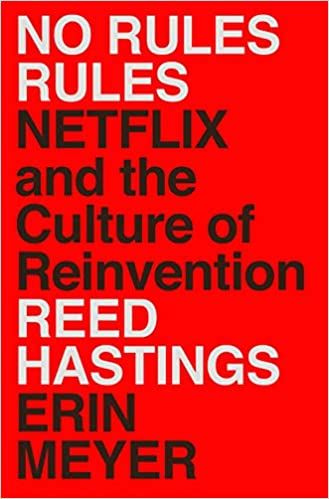
Company culture is something that we, as founders, talk on its importance. But how many times we intentionally build, think, and find ways to cultivate them.
In this book, Reed Hasting and Erin Meyer shared many insights from the study of their own cultures at Netflix. There are also many commentary from Netflix employees describing their experience working there.
If you’re running and building a technology company, this is a must read book on building a brutally honest culture for innovation.
Seek to hire the very best and then inject fear into your talented employees by telling them they’ll be thrown back out onto the “generous severance”
One of the most unique culture of Netflix is to inject fear into their talented employees. In exchange, the company is making sure that everyone in the company are highly compensated at their respective field.
The way they do this is also unique and pro-active, embedded into the workplace culture. For instance, employees are encouraged to speak with headhunters to get insights on how much is the market compensation for their role.
Netflix don’t make salary adjustment based on the performance of the employee, but based on the market. They don’t have (and not want to have) the Key Performance Indicator (or KPI) that are commonly used in traditional corporations.
KPI doesn’t make sense in the fast growing company because it was pre-determined in advanced, so it may lead the employee to keep doing something that may not be relevant anymore. For instance, at a certain stage of a company retention rate may be the more relevant success metric, not user acquisitions.
One Reason for Netflix’s Success—It Treats Employees Like Grownups.
It is a brutally honest culture because they don’t give a false sense of reality to their employees. If the employee is only performing adequately, they will not hesitate to fire them. And for many, this is a fair exchange when the company is making sure that they are paid at the top of their field.
The book also described that companies are making a mistake when they treat their employees as family. Employees are more like professional sports players, than a family.
In a family, we’re stuck and just need to accept weaknesses of our family members. In a professional sports team, the coach will almost always exchange a sub-par player for a better one.
Know effort isn’t enough, recognizing that, if they put in a B performance despite an A for effort, they will be thanked and respectfully swapped out for another player.
It’s about results, not effort. Recognizing that the best effort of individual, may not be good enough, is one of brutally honest things that the company does.
For people who value job security over winning championships, Netflix is not the right choice,
The company also recognize that their culture isn’t for everyone. They are making this loud and clear to make sure that everyone in their team (and to those that are considering in joining Netflix) are in it to win the championship, which is also a good screening method.
But for those of you who are operating in the creative economy, where innovation, speed, and flexibility are the keys to success, consider throwing out the orchestra and focusing instead on making a different kind of music.
Netflix culture is illustrated as a jazz, where the actual music may have some variances, but everyone in the orchestra agreed on the fundamental principles of the music notes.
The culture is designed for speed, agility, and adaptability for change. It doesn’t have much rules and process. They teach and expect every employee to act on what’s best for the company.
Our North Star is building a company that is able to adapt quickly as unforeseen opportunities arise and business conditions change.
The book also describes on their experiences of adapting Netflix culture in different parts of the world, taking considerations of different cultures.
It would be interesting to see if there’s a company with Asian root implement Netflix-like culture.